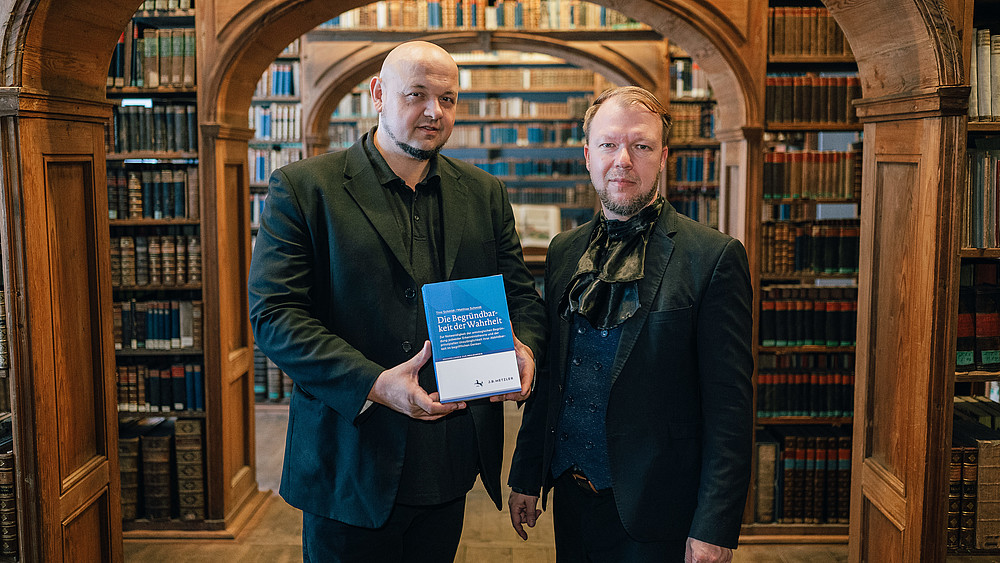As part of the research project "Metadoxia and Truth", a textbook has now been published in the renowned Edition Metzler by Springerverlag.

Some projects do not end in a project report, but in a textbook. As part of the research project "Metadoxie und Wahrheit - Zur objektiven Begründbarkeit von Wissen im postfaktischen Zeitalter", a textbook has now been published by the renowned Edition Metzler from Springerverlag.
In the book "Die Begründbarkeit der Wahrheit", Tino Schmidt and Prof. Matthias Schmidt examine the complex question of whether and how knowledge can be objectively justified in the age of post-factual debates. It shows that the search for an ultimate truth remains a cornerstone of philosophy despite the widespread realization that reality can only ever be perceived through the subjective filters of our minds. The authors take up this challenge by exploring the fundamental structures of human thought and showing how these enable us to develop conceptual notions of truth in the first place. Hardly any serious scientist today would claim to be in possession of ultimate truths. This is because we have no "objective" standard of comparison from which we could deduce how accurately our mind depicts reality, because we only ever recognize it with its help.
This book shows how the idea of ultimate truth nevertheless fundamentally determined the development of philosophy - especially among thinkers who never addressed the question of truth. In our thinking, we always implicitly presuppose that our concepts are at least symbolic forms for the reality they represent. It is precisely for this reason that this book deals with the pre-conceptual basis of thought that enables people to develop conceptual ideas in the first place - and what consequences this has for the limits and possibilities of any scientific theory formation.
For the first time, theories of truth are presented in a comprehensible form from three different perspectives: historical-critical, epistemological-systematic and cognitive-scientific. They are placed in relation to each other in order to derive tendencies of future developments in the theory of science from the historical connections of ideas in the history of philosophy - beyond a purely technical philosophical approach. Coherence, pragmatic, redundancy, semantic, deflationary, disquotation minimalist theory are systematically contrasted with this view. Above all, the authors want to initiate a debate on the limits and possibilities of the philosophy of science and offer a comprehensive overview of theories of truth that goes far beyond a purely philosophical approach.